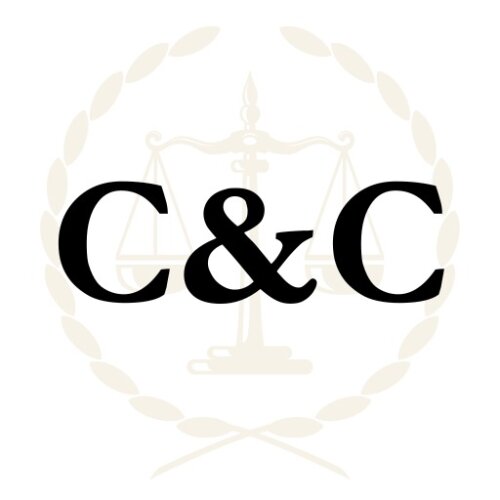Best Corporate Governance Lawyers in Seremban
Share your needs with us, get contacted by law firms.
Free. Takes 2 min.
List of the best lawyers in Seremban, Malaysia
About Corporate Governance Law in Seremban, Malaysia
Corporate governance refers to the system of rules, practices, and processes by which companies are directed and controlled. In Seremban, Malaysia, corporate governance is rooted within Malaysia’s broader legal framework, including statutes, regulations, and guidelines issued by regulatory authorities. The aim is to ensure transparency, accountability, and ethical business practices among corporations, promoting trust and sustainability in the business landscape. Good corporate governance is essential for public confidence, protection of stakeholders, and the growth of the commercial sector in Seremban.
Why You May Need a Lawyer
Corporate governance can be complex, especially for business owners, directors, or investors who may not be well-versed in the laws or best practices. You may need a lawyer to:
- Draft or review corporate documents such as constitutions, shareholders’ agreements, or board resolutions
- Ensure compliance with relevant legislation and statutory obligations
- Resolve disputes among shareholders, directors, or management
- Advise on directors’ duties, liabilities, and conflict of interest situations
- Assist with regulatory investigations and enforcement proceedings
- Guide mergers, acquisitions, or restructuring processes
- Advise on disclosure and reporting requirements
- Help establish corporate governance frameworks and internal controls
Legal assistance is crucial to avoid pitfalls, penalties, or reputational risks that may arise from non-compliance or mismanagement.
Local Laws Overview
Corporate governance in Seremban is largely governed by national Malaysian laws and enforced at the local level. Key statutes and regulations include:
- Companies Act 2016 - Outlines requirements for company formation, management, directors’ duties, and shareholders’ rights
- Malaysian Code on Corporate Governance (MCCG) - Provides best practices for listed companies and sets standards for board structure, audit, and risk management
- Capital Markets and Services Act 2007 - Governs conduct for public-listed companies and market intermediaries
- Bursa Malaysia Listing Requirements - Imposes rules for companies listed on Bursa Malaysia, including disclosure and governance obligations
- Other guidelines - Such as those published by Bank Negara Malaysia and the Securities Commission Malaysia
Locally in Seremban, the Companies Commission of Malaysia (SSM) serves as the main point of registration and oversight for company matters, while state and municipal authorities may have further administrative requirements.
Frequently Asked Questions
What is the role of a company director under Malaysian law?
Directors are responsible for managing the company's affairs, ensuring compliance with laws, acting in good faith, avoiding conflicts of interest, and always serving the company’s best interests.
Is it mandatory for companies in Seremban to have a corporate governance framework?
While all companies must comply with statutory duties and certain governance requirements, formal frameworks are particularly emphasized for listed companies and those regulated by specific industries.
Who regulates corporate governance in Malaysia and Seremban?
Corporate governance is regulated by national bodies such as the Companies Commission of Malaysia, Securities Commission Malaysia, and Bursa Malaysia. Local enforcement may involve state commercial and business units.
What happens if a company fails to comply with corporate governance laws?
Non-compliance can result in regulatory sanctions, fines, criminal charges against directors, company deregistration, or civil lawsuits from stakeholders.
Are shareholders entitled to information about the company’s conduct?
Yes, shareholders have the right to access certain company records, receive annual reports, and attend meetings to review and vote on company matters.
How can disputes between shareholders and directors be resolved?
Disputes may be resolved through mediation, arbitration, or legal proceedings. Many companies include dispute resolution clauses in their constitutions or shareholders’ agreements.
Can a director be removed from office?
Yes, directors can be removed by shareholder resolution, subject to the process outlined in the Companies Act 2016 and the company’s constitution.
What is required for company board meetings to be valid?
Requirements include proper notice, a quorum as defined in the constitution or law, an agenda, and accurate minute-taking.
What measures can a company take to strengthen its corporate governance?
Steps include establishing clear policies, ensuring board independence, setting up audit and risk committees, promoting transparency, and regular legal compliance reviews.
Where can I get more information about my corporate governance obligations?
You can consult with a local corporate lawyer, refer to official guidelines from SSM and the Securities Commission, or attend training sessions by business chambers.
Additional Resources
- Companies Commission of Malaysia (SSM) - For company registration and regulatory guidance
- Securities Commission Malaysia - For governance of listed companies and capital market regulations
- Bursa Malaysia - For compliance requirements of listed entities
- Local business chambers, such as the Negeri Sembilan Chinese Chamber of Commerce and Industry, for networking and educational events
- Legal aid centers and professional associations, such as the Malaysian Bar
Next Steps
If you require legal assistance regarding corporate governance in Seremban:
- Gather all relevant company documents and records
- Identify the specific issue or concern you are facing
- Consult with a qualified corporate lawyer familiar with local and national laws
- Consider attending workshops or legal briefings for company directors and officers
- Stay informed about current regulations and updates from relevant authorities
Being proactive with legal advice and compliance can help you avoid disputes, regulatory issues, and fines, ensuring your company is well-managed and trusted in the marketplace.
Lawzana helps you find the best lawyers and law firms in Seremban through a curated and pre-screened list of qualified legal professionals. Our platform offers rankings and detailed profiles of attorneys and law firms, allowing you to compare based on practice areas, including Corporate Governance, experience, and client feedback.
Each profile includes a description of the firm's areas of practice, client reviews, team members and partners, year of establishment, spoken languages, office locations, contact information, social media presence, and any published articles or resources. Most firms on our platform speak English and are experienced in both local and international legal matters.
Get a quote from top-rated law firms in Seremban, Malaysia — quickly, securely, and without unnecessary hassle.
Disclaimer:
The information provided on this page is for general informational purposes only and does not constitute legal advice. While we strive to ensure the accuracy and relevance of the content, legal information may change over time, and interpretations of the law can vary. You should always consult with a qualified legal professional for advice specific to your situation.
We disclaim all liability for actions taken or not taken based on the content of this page. If you believe any information is incorrect or outdated, please contact us, and we will review and update it where appropriate.













